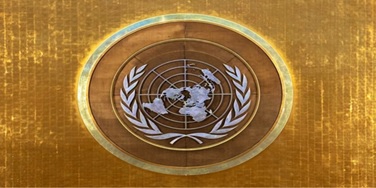08 December, 2025
India Elected Unopposed as a Member of the UNHRC for a Three-Year Term
Wed 15 Oct, 2025
Context:
- India has been elected unopposed to the United Nations Human Rights Council (UNHRC) for a three-year term (2026–28).
- This marks India’s seventh term since the establishment of the Council in 2006.
Key Points:
- Despite being unopposed, India received 177 out of 188 votes in the pro forma ballot.
- Reason for being unopposed: India contested the election from the Asia-Pacific regional group, where the number of vacant seats was equal to or fewer than the number of candidates. Therefore, the election became formal in nature, with no direct competition.
- Diplomatic commitment: India reaffirmed its unwavering commitment to human rights and fundamental freedoms.
Philosophy of “Vasudhaiva Kutumbakam” (The World is One Family):
- During the election process, India highlighted the philosophy of “Vasudhaiva Kutumbakam” in its candidature.
- This principle reflects India’s commitment to global unity, inclusiveness, and mutual respect, aligning with the universal principles of human rights.
Challenges and Opportunities for India:
Opportunities:
- India can use its tenure in the UNHRC to make constructive contributions to the global human rights dialogue.
- It can also represent the concerns of developing countries and promote a balanced approach toward human rights issues.
Challenges:
- India may face criticism from some countries on sensitive internal issues, such as Jammu and Kashmir.
- It will also have to play a significant role in reviewing global human rights situations, which can be a complex and sensitive task.
United Nations Human Rights Council (UNHRC)
- Predecessor: It replaced the United Nations Commission on Human Rights (UNCHR), which had faced questions about its credibility and effectiveness.
- Nature: An intergovernmental body within the United Nations system.
- Parent Body: A subsidiary organ of the UN General Assembly (UNGA), responsible for addressing human rights violations worldwide.
- Establishment: Created on 15 March 2006 by a UN General Assembly Resolution (60/251).
- Headquarters: Geneva, Switzerland.
Structure and Membership:
The UNHRC comprises 47 Member States, elected by the UN General Assembly based on equitable geographical distribution.
| Regional Group | Seats |
| African States | 13 |
| Asia-Pacific States | 13 |
| Latin American & Caribbean States | 8 |
| Western European & Other States | 7 |
| Eastern European States | 6 |
| Total Members | 47 |
Term and Election:
- Term: Members serve for a three-year term and are not eligible for immediate re-election after serving two consecutive full terms.
- Election Process: Members are elected by the UN General Assembly (UNGA) through a secret ballot and must secure an absolute majority of votes.
- Term Limits: A member can serve for a maximum of two consecutive terms before stepping down for at least one year.


















